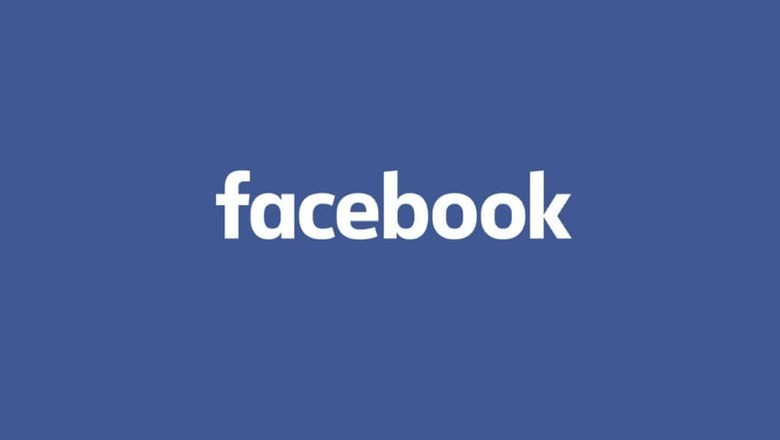
views
If there is one thing that needs to become plainly clear from the start itself, it is that Facebook in its 15-year journey thus far has always prioritized growth over anything else. And the anything else includes user privacy. It was all about numbers for Mark Zuckerberg’s Facebook. It was as if the virtual accountants were leading the charge, with one mandate only—get more and more people to sign up, actively use Facebook and make it a habit. That it did, very successfully. And all that time this was happening, user privacy was being compromised. Not that many of us bothered, till early last year when the Cambridge Analytica scandal blew in our collective faces. Since then, we have come to hear about one data leak after another. Simply put, 2018 was a terrible year for Facebook. As it is, 2019 hasn’t started off any better. The latest revelation being that some third-party apps, including health tracking apps, are sharing your data with Facebook even though you may not have explicitly agreed to this.
Which is why we take Mark Zuckerberg’s latest Facebook post, outlining the future of the social network and its gamut of acquired apps, with a generous pinch of salt. This long post, which talks about a new direction for Facebook, Whatsapp, Messenger and Instagram, could perhaps be seen as a belated course correction. “Public social networks will continue to be very important in people's lives -- for connecting with everyone you know, discovering new people, ideas and content, and giving people a voice more broadly. People find these valuable every day, and there are still a lot of useful services to build on top of them. But now, with all the ways people also want to interact privately, there's also an opportunity to build a simpler platform that's focused on privacy first,” writes Zuckerberg, the CEO of Facebook.
Mind you, we hope Facebook manages to do everything it has outlined now, but then again, we aren’t really sure it will. Could things really change for the 2.3 billion monthly users? So, what all is Zuckerberg promising?
The first big announcement is about Private interactions. Facebook says users should have simple, intimate places where they have clear control over who can communicate with them and confidence that no one else can access what they share. This is a big switch in a way from the positioning thus far, where users were made to share as much information in the public domain as they could. We could see a revamp of the data sharing settings, first and foremost, which at present are leaning more towards enabling sharing for public.
The second big mission that Facebook is embarking on is encryption. Facebook says that private messaging should be secure, and for that, they will be deploying end-to-end encryption which will prevent anyone, including Facebook themselves, from reading the contents of these messages.
Then there is something which Facebook is calling as Reducing Permanence. The social network says they will now not keep messages or stories “for longer than necessary to deliver the service or longer than people want them.” The idea is to offer an option for users to automatically delete instant messages after a specific duration, perhaps after a month or an year, if they so wish.
The other big pitch is interoperability. Facebook says that they will soon allow users to message friends from messaging app to another. For instance, someone using WhatsApp will be able to message someone on Facebook Messenger, and vice-versa. The plan is to make this interconnect work between WhatsApp, Messenger and Instagram Direct. Encryption needs to be enabled on all the interconnected platforms for this to work.
“Over the next few years, we plan to rebuild more of our services around these ideas. The decisions we'll face along the way will mean taking positions on important issues concerning the future of the internet. We understand there are a lot of tradeoffs to get right, and we're committed to consulting with experts and discussing the best way forward,” writes Zuckerberg.
Facebook’s problems haven’t only been about data leaks. It is a growing perception, and not entirely incorrect to be honest, that Facebook is also home to bullies, racists, trolls, harassers and operatives that can potentially turn an election on its head.
However, in the long post that details the future of Facebook, there is one glaring omission. Mark Zuckerberg has not mentioned anything about the policy for data sharing with third party apps. It is this data sharing, whether users may have agreed to it or not, is priceless for Facebook. This has helped massively with advertising, for starters. Just this week, the latest revelation in the never-ending saga ends up with a research by Privacy International, which suggests apps such as Yelp and Duolingo are sharing your data with Facebook, even if you may not even be on Facebook.
These announcements seem more in-line with the need to please the regulators in the US as well as a lot of governments around the world—most of whom have pulled up Facebook at some point or the other for a variety of reasons, including failing to check the spread of fake news to issues around safeguarding user data. In India, the government is insistent that Facebook needs to ensure it is able to curtail the spread of fake news ahead of the 2019 General Elections.
The question still remains—if Facebook is indeed going private, how does the platform that was built on the idea of sharing for the public going to morph? For users, for advertisers, for news platforms and for trolls?













Comments
0 comment